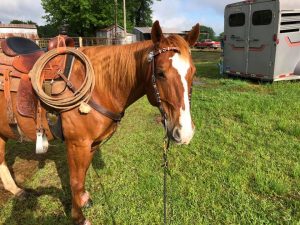
Knockout sporting his new headstall
Saturday morning, I opted for a leisurely ride with Knockout before the rest of the family awoke.
I had a quick cup of coffee, took care of a few chores, grabbed a halter, and headed for the pasture. I greeted Knockout and talked about the beautiful weather as I slipped the halter on him. Knockout seemed happy to see me and willingly followed my lead. We exited the pasture gate and headed for the tack room, where I promptly dropped the lead line on the ground and opened the door.
Some folks say to never drop a lead line on the ground. The horse is liable to run off. He may freak when the lead moves as he moves. Or, he may step on the lead, trap his own head, startle, and throw a fit. People and horses have been injured doing this. It’s a really bad idea.
I reached inside the tack room to grab a handful of treats. I gave two treats to Knockout and shoved the rest in my pocket. I handed out the rest of the treats at intervals during the grooming session. Knockout made sort of a game of politely asking for a treat as I completed different stages of grooming. Of course, I laughed and obliged him.
Some folks say to never give horses treats. Giving horses treats causes them to become disrespectful and pushy, always trying to grab treats from pockets. Some people have been bitten or run over doing this. It’s a really bad idea.
I fly-sprayed Knockout, then sprayed conditioner on his mane and tail, before combing out the tangles. I picked his hooves then thoroughly brushed him, working front-to-back down his left side, around his hind-quarters, then up the right side.
Some folks say to never walk directly behind a horse. You could get kicked. People have been seriously injured doing this. It’s a really bad idea.
As I groomed, Knockout stood calmly relaxed. Occasionally, he would drop his head to grab a mouthful of grass. Sometimes, he would take a step to grab a particularly tempting clump of grass. I simply applied soft pressure to guide him back to the original spot and went right back to grooming.
Some folks say to never let a horse eat grass while he has a halter and lead line on. The horse could form a bad habit of constantly stopping to eat instead of paying attention to the rider. It is a hard habit to break and incredibly annoying. It shows disrespect. It is a really bad idea.
Next I stepped inside the tack room for the saddle pad and saddle, placing each on Knockout before flopping the stirrups and straps into place and tightening the girths and breast collar.
Some folks say to never saddle a horse without having the lead line secured. The horse could spook and run. If the saddle gets knocked off he could panic and learn to fear the saddle. It is a really bad idea.
Then I took Knockout’s halter off, set it aside, and slipped his bridle on.
Some folks say to always latch the halter strap around the horse’s neck while putting the bridle on. Otherwise, you have no way to control the horse if something happens. The horse could run off and cause all sorts of problems. It is a really bad idea.
I gathered the reins and mounted. Knockout stood still as I got situated and petted him. Then he calmly walked off.
Normally, I’m pretty insistent on requiring a horse to stand still until I cue him to move. This time was interesting, though, as I was just ready to cue when he started moving. It seemed like Knockout knew what I was going to ask before I asked it, and acted accordingly.
Some folks say to never let a horse walk off without a cue from the rider. It teaches the horse to do what he wants instead of following the rider’s cues. It is very disrespectful, leads to bad habits, and can get dangerous. It is a really bad idea.
Since Knockout started walking before I actually cued him, I decided to wait and see where he went. I planned to ride thru the arena gate, out the other side of the arena, and into the pasture. But I was interested to see what Knockout had in mind.
Knockout walked calmly to the arena gate, turned to align his body with the gate, and stopped with the latch beside my stirrup. I reached down, unlatched the gate, swung it open, and we rode into the arena. Then I prompted Knockout to turn, back up, and side-pass as I closed the gate.
I don’t know if Knockout somehow knew my plans through some subtle signal I unintentionally gave, or if we just lucked out with him wanting to do what I already planned to do. Either way, it was pretty cool! I wonder if this is what Ray Hunt was talking about when he wrote, “Let your idea become the horse’s idea.”
Some folks say to never let a horse decide where to go. The horse should always follow the rider’s prompts. If you start letting the horse make his own decisions under saddle, he could start ignoring the rider and just doing whatever he wants. It is a really bad idea.
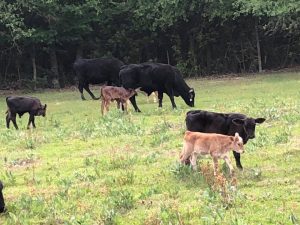 As we headed out of the arena toward the back pasture, Knockout walked toward the path we usually take. However, the cattle herd was on the east side of the pasture and I wanted to check on the young calves. So, I gently asked Knockout to head that direction. He promptly turned where I asked…then just as promptly started swinging back toward the familiar route. So, I repeated the soft cue. Again he promptly responded then started swinging back to familiar paths.
As we headed out of the arena toward the back pasture, Knockout walked toward the path we usually take. However, the cattle herd was on the east side of the pasture and I wanted to check on the young calves. So, I gently asked Knockout to head that direction. He promptly turned where I asked…then just as promptly started swinging back toward the familiar route. So, I repeated the soft cue. Again he promptly responded then started swinging back to familiar paths.
On the third prompt, Knockout stayed with the direction I asked for and simultaneously picked up into a trot. I’m not sure why he increased his gait. Maybe he saw the cows and thought we were going to drive them…he enjoys pushing cows out of the arena. Or, maybe he was just enjoying the nice cool morning and felt like trotting. Either way, I decided to just go with him and let him set the pace. Then, as we neared the herd, I slowed him to a walk so we wouldn’t startle the cows.
Some folks say to never let the horse change gaits without a prompt from the rider. The horse may start thinking he can do what he wants. That leads to bad habits and you will soon have a horse who bolts uncontrolled. The rider must always be firmly in control.
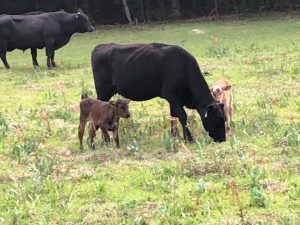 The young calves and the mama cows all looked healthy. I pulled out my cell phone and snapped a few pictures before we continued on. As we left the herd, Knockout again picked up into a nice smooth trot which we continued all the way around the back of the pasture until I slowed him to a walk as we entered the woods.
The young calves and the mama cows all looked healthy. I pulled out my cell phone and snapped a few pictures before we continued on. As we left the herd, Knockout again picked up into a nice smooth trot which we continued all the way around the back of the pasture until I slowed him to a walk as we entered the woods.
Other than a pesky swarm of a gnats, we both enjoyed the freshly trimmed woods trail. Not far from the entrance, Knockout sort of half-stepped to the right toward a little cut-thru trail. He wasn’t pushy or demanding about it…more of a tentative request, “Shall I turn here?” I lifted my left stirrup to let him know I didn’t want the right turn. As we continued on, I petted Knockout and told him I appreciated him paying attention and asking politely. “We’ll take that path another time.”
As we neared a big mud hole I started looking to see the water level. If it is full of water, I usually ask Knockout to go ahead and walk thru it. However, if it is just yucky, sticky mud I usually prompt him to cut thru the woods to the left.
This time, the mud hole was a sticky, muddy mess. But before I could prompt Knockout to turn, he made the decision himself, confidently turning left thru the woods. I just went with him. Why correct a horse when he’s making good decisions? Yay, Knockout! 🙂
We stopped to trim a few vines from the cut-thru trail. Vines tend to dangle and swing with nothing to brace against. So, I wound up dropping the reins in front of the saddle to stand in the stirrups, grasping the vine with my left hand while trimming with my right hand.
Some folks say to never drop the reins. The horse could spook and run. The reins could fall over his head and tangle in his hooves, causing him to panic and resulting in an accident. Horses have been injured doing this. It is a really bad idea.
All went well and Knockout was calm throughout…except the time a leafy branch landed square on his head and hung on his ears, refusing to drop to the ground even with vigorous head-shaking combined with a little side-stepping. I laughed, leaned forward, grabbed the branch, and dropped it to the ground.
As we approached the creek crossing, I was looking at two possible routes, trying to gage which was better since the last rain. Before I decided, Knockout confidently turned to the nearest of the two and hopped across. Hey…that looked like as good a decision as any…and he is the one who has to make the crossing after all. Why correct a good decision?
The whole ride sort of went that way. I gave Knockout more liberty than usual, trusting him to do the right thing. Knockout responded by becoming more confident in his decisions. So long as he was going pretty much where I wanted, I let him decide. If we needed to make adjustments, I let him know that, too.
My cell phone rang…summoning me back to the house.
I prompted a canter departure and Knockout responded with a nice smooth lope across the back pasture. As we approached the pond levy, I slowed him and we walked across and back to the arena.
Some folks say to never canter on the way home. The horse is liable to run away in over-eagerness to get back home. It is a really bad idea.
As we entered the arena gate, Knockout turned right, walked past the roping chute into the roping box, turned around, and backed into the corner. “Dude, you have got this down!” I laughed, as he calmly waited for me to dismount, loosen the cinch, and lead him back to the tack room.
It was a pretty awesome ride…one I hope to build on as we grow in trusting each other and listening to each other in this partnership.
Did you notice how many times I disregarded various rules I’ve heard?
People have a lot of rules for handling horses. Most of them are good rules. They’re important. Most of these rules have been learned and passed on by people who have personal experience with just how quickly and how badly things can go wrong when working with horses.
Reading this post, you might get the impression I don’t have much use for rules. You might even think I recklessly flaunt rule violations.
That would be a false impression.
I’m actually quite safety conscious. I’m the only male western rider I know who regularly wears a riding helmet, for example.
Every rule I listed is a rule I have followed in the past. And I’m pretty sure I have passed most of those rules on to children, grandchildren, and guests who have visited our horses. If I was handling a strange horse I didn’t know, I would carefully follow these same rules, at least until I got to know him better. In fact, with our own horses who I interact with daily, I follow these rules to varying degrees, depending on what I’m doing with which horse.
As I see it, these rules have a time and place. They are important, but not as important as a relationship built on trust and mutual respect.
While working with horses, one must always be safety-conscious. Horses are big, powerful, fast animals with natural flight instincts. We humans are quite fragile by comparison, and easily injured. Those rules I mentioned are wisdom handed down to help keep riders safe.
The rules are an attempt to keep the rider in control, so as to be as safe as possible. The only problem is, the longer I work with horses the more aware I become that I am never truly in control. The horse is so much bigger, faster and more powerful than me, I can never really control him. I can ask all I want, but I can never really make him do anything. I’m much too puny compared to his awesome strength.
To safely guide a horse, I need the horse to trust me. I want him to look to me as a leader he will willingly follow. And when he is startled or frightened, I want him to look to me for guidance. Otherwise, he will blindly follow his instincts to balk, bolt, or buck.
In other words, my ongoing safety in working with a horse is dependent on our building a relationship based on mutual trust and respect. And following the rules too rigidly interferes with the building of that relationship. Following the rules too rigidly for too long can actually make the situation less safe by not letting the relationship of trust develop.
Rules are based on trying to control. Relationship is based on trust that doesn’t require rigid control.
The rules are important…but they have a time and place. The rules are important…but should not be rigidly applied to all situations with all horses all the time.
And the more the relationship develops into mutual trust and respect with clear communication, the less helpful the rules become.
In the beginning the rules are important, and things are more black and white. But once mutual trust and respect blossom thru consistency and clear communication, the rules have sort of served their purpose and become less important than the relationship.
The same is true in my relationship with God.
The Bible says “Thou shalt not commit adultery.” As Christians we have all seen respected leaders fall to the sin of adultery. We have multiple examples in scripture of spiritual leaders such as Samson or King David committing adultery. So, we create safety rules such as never be alone with someone of the opposite sex…even in a public setting.
The Bible admonishes to whole-heartedly live out covenant vows and to not treat a covenant partner treacherously. So, we create safety rules that divorce should always be avoided…no matter what.
The Bible admonishes against habitual drunkenness. We have all known folks who were addicted to alcohol and have seen the destruction it can lead to. So, we create safety rules that prohibit drinking alcohol..ever..for any reason.
The list goes on and on. The Bible exhorts us to modesty…so we create rigid dress codes. The Bible exhorts us to not neglect gathering together…so we set specific dates and times. And the more a given group stresses the need to rigidly live by the rules, the more rules they come up with. Every infraction is dealt with by adding a new rule to attempt to minimize temptation or maximize righteousness.
Much like the horse safety rules, these rules of Christian living are generally good rules based on wisdom someone gained through experience and passed on to others. They are intended to keep people safe.
The only problem is, trying to live by rules can never keep us safe.
Our safety can only be assured through a personal relationship with Jesus Christ, based on trust and respect, built on clear communication in the Holy Spirit. Trying to live by the rules actually interferes with the development of that relationship.
Rules are based on trying to control. Relationship is based on trust that doesn’t require rigid control.
In the beginning the rules are important, and things are more black and white. But once mutual trust and respect blossom thru consistency and clear communication, the rules have sort of served their purpose and become less important than the relationship.
Speaking to religious leaders who were experts in biblical rules, Jesus said,
You search the Scriptures because you think that in them you have eternal life; it is these that testify about Me; and you are unwilling to come to Me so that you may have life. (John 5:39)
Paul reinforced this principle in his letter to the Galation believers who were becoming focused on rigidly following rules,
But before faith came, we were kept in custody under the law, being shut up to the faith which was later to be revealed. Therefore the Law has become our tutor to lead us to Christ, so that we may be justified by faith. But now that faith has come, we are no longer under a tutor. For you are all sons of God through faith in Christ Jesus. (Galations 3:23-26)
The rules are important…but they have a time and place. The rules are important…but should not be rigidly applied to all situations for all Christians all the time.
The rules are wisdom to help keep us safe as we develop relationship. Once the relationship begins to blossom in trust through clear communication, the rules are no longer necessary and become a liability, interfering with relationship building.
Your thoughts?
Like this:
Like Loading...

 Saturday morning, I saddled Knockout and rode out in the pasture to check cows. We counted every cow, calf, and bull, checking off ear tags as we went.
Saturday morning, I saddled Knockout and rode out in the pasture to check cows. We counted every cow, calf, and bull, checking off ear tags as we went.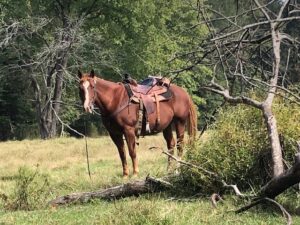
 In recent news, Duke University’s student government voted against giving official recognition to the school’s Young Life chapter due to the organization having a ban on openly LGBT leadership.
In recent news, Duke University’s student government voted against giving official recognition to the school’s Young Life chapter due to the organization having a ban on openly LGBT leadership.
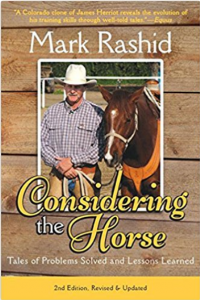 I just finished reading another of Mark Rashid’s books, titled “
I just finished reading another of Mark Rashid’s books, titled “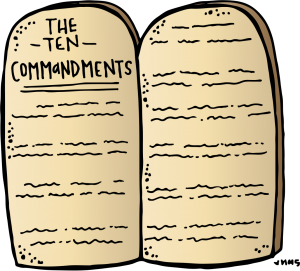 Shortly after Israel’s great deliverance from Egypt, God made a
Shortly after Israel’s great deliverance from Egypt, God made a 
 The young calves and the mama cows all looked healthy. I pulled out my cell phone and snapped a few pictures before we continued on. As we left the herd, Knockout again picked up into a nice smooth trot which we continued all the way around the back of the pasture until I slowed him to a walk as we entered the woods.
The young calves and the mama cows all looked healthy. I pulled out my cell phone and snapped a few pictures before we continued on. As we left the herd, Knockout again picked up into a nice smooth trot which we continued all the way around the back of the pasture until I slowed him to a walk as we entered the woods. Last November, Mama fell and broke her hip. At 90 years old, any injury is a serious concern. But Mama had recovered well from broken bones before and we expected a full recovery this time.
Last November, Mama fell and broke her hip. At 90 years old, any injury is a serious concern. But Mama had recovered well from broken bones before and we expected a full recovery this time.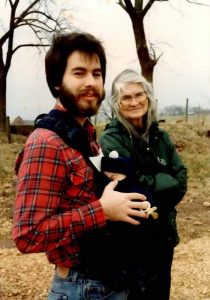
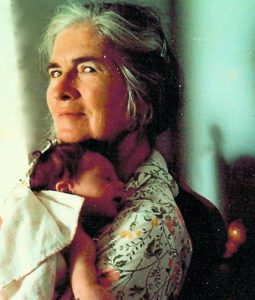 Mama taught me to stand firm in my convictions. From things as minor as making sure pagan-based customs were excluded from our Christian holiday celebrations to major issues such as school integration and standing against racism, we were taught at an early age to stand for what we believed no matter how unpopular our stance might be.
Mama taught me to stand firm in my convictions. From things as minor as making sure pagan-based customs were excluded from our Christian holiday celebrations to major issues such as school integration and standing against racism, we were taught at an early age to stand for what we believed no matter how unpopular our stance might be.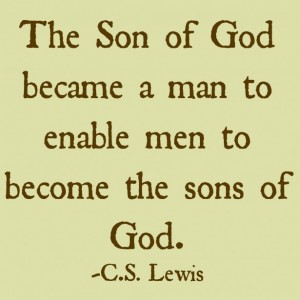 Does God change?
Does God change?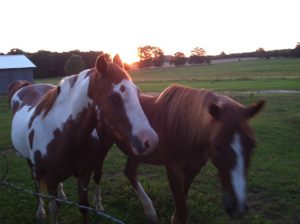 I absolutely love spending time with our horses learning horsemanship!
I absolutely love spending time with our horses learning horsemanship!